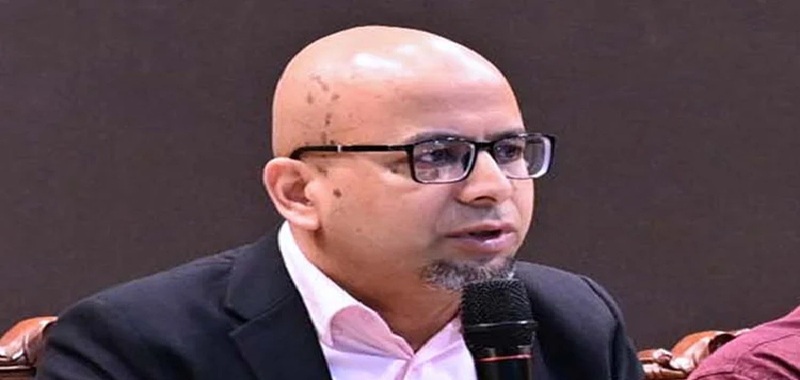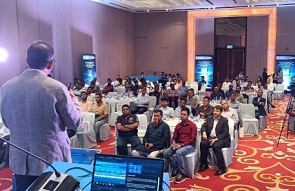How AI Can Help in Accounting Management Software: Intelligent Accounting System Explained
Artificial Intelligence (AI) is no longer a futuristic concept—it’s a game-changer across industries. In the field of accounting, AI helps organizations move away from repetitive, error-prone manual work toward automated, data-driven, and intelligent processes. Today, AI in accounting management software is enabling companies to manage finances smarter, faster, and more efficiently. One of the standout innovations in this space is the Intelligent Accounting System developed by Intelligent Systems, a powerful platform that integrates AI seamlessly into accounting workflows.Understanding Accounting Management Software Traditional Accounting Software Challenges While traditional accounting software has been helpful in managing ledgers, payroll, and tax records, it often lacks adaptability and intelligence. Businesses face challenges such as: Manual data entry Human errors Delays in generating reports Limited predictive capabilities Why Businesses Need AI Integration AI integration bridges these gaps by introducing automation, predictive analytics, fraud detection, and real-time insights, ensuring businesses stay ahead in financial management.Role of AI in Modern Accounting Automation of Repetitive Tasks AI automates tasks like invoice processing, tax filing, and reconciliations, saving accountants hours of manual effort. AI-Powered Financial Forecasting By analyzing historical data and market trends, AI predicts future cash flows, revenue, and potential risks. Fraud Detection & Risk Management AI algorithms detect unusual patterns in financial transactions, alerting businesses about possible fraud. Smart Expense Tracking & Compliance AI ensures compliance with tax laws and regulations while providing a smart, automated way to manage expenses.Intelligent Accounting System by Intelligent Systems What Makes It Different? Unlike conventional tools, Intelligent Accounting System integrates AI at its core, providing businesses with intelligent decision-making capabilities. AI Features Integrated in Intelligent Accounting System Automated Data Entry The system eliminates repetitive data entry tasks with AI-driven automation. Predictive Financial Insights AI generates predictions about market trends, helping businesses plan ahead. Real-Time Reporting & Analytics Businesses can access real-time dashboards with up-to-date financial health. AI-Powered Decision Support The system assists in making smart business decisions based on accurate AI-driven insights.Benefits of AI-Driven Accounting Management Software Increased Efficiency & Productivity – Accountants can focus on strategic planning instead of routine tasks. Cost Reduction – Automation lowers operational costs. Data Accuracy & Transparency – AI ensures error-free data management. Improved Strategic Decision Making – With predictive analytics, businesses can make informed decisions faster.Real-World Applications of Intelligent Accounting System Small & Medium Enterprises (SMEs): Automates bookkeeping and tax compliance. Large Corporations: Helps in risk management and financial strategy. Financial Institutions: Detects fraud and ensures regulatory compliance.Future of AI in Accounting Management Software AI + Blockchain Integration A secure and transparent financial ecosystem with blockchain and AI synergy. Personalized AI Financial Advisors Future accounting systems will serve as personalized advisors for businesses.FAQs Q1. How can AI help in accounting management software? AI automates routine tasks, improves accuracy, detects fraud, and provides predictive financial insights. Q2. What is Intelligent Accounting System? It’s an AI-powered accounting management software developed by Intelligent Systems to enhance financial efficiency. Q3. Does AI reduce costs in accounting? Yes, AI reduces manual workload, minimizes errors, and cuts down operational costs. Q4. Is AI safe for financial data? AI-powered systems use encryption and fraud detection, ensuring data safety. Q5. Can SMEs use AI in accounting? Absolutely. AI tools are scalable and cost-effective for SMEs. Q6. What’s the future of AI in accounting? The future includes AI-driven advisors, blockchain integration, and real-time predictive analytics.AI is transforming the way businesses handle financial management. With tools like the Intelligent Accounting System by Intelligent Systems, companies can achieve higher efficiency, accuracy, and profitability. As AI continues to evolve, the future of accounting management looks smarter than ever.
BTCL Bringing Triple-Play and Quad-Play Services for the First Time in Bangladesh
Dhaka, September 2025 – Bangladesh Telecommunications Company Limited (BTCL), the country’s largest state-owned telecom operator, is set to revolutionize digital communication in Bangladesh by introducing Triple-Play and Quad-Play services for the very first time. This pioneering initiative brings together voice, data, device accessibility, and entertainment into a single integrated package, ushering in a new era of connectivity.Key Components of the Upcoming Services1. BTCL MVNO – Mobile SIM BTCL will launch its own Mobile Virtual Network Operator (MVNO) service, providing BTCL-branded SIM cards. In combination with Alap IPphone, customers will enjoy unlimited voice calling under specific conditions. The recent update to the Telecommunication Network Licensing Policy has removed all regulatory barriers for MVNO, clearing the path for this launch.2. BTCL Alap – IP Phone App The popular BTCL Alap app will be fully integrated with the MVNO service, allowing seamless app-based calling. This will enable cost-effective voice calls with greater flexibility for users.3. BTCL Jīpon – ISP Connectivity Through BTCL Jīpon, customers will gain access to unlimited internet data. Leveraging its strong telecom backbone, BTCL plans to extend affordable and reliable connectivity to every corner of Bangladesh.4. OTT Partnerships – Unlimited Entertainment BTCL is preparing to partner with OTT platforms including Bongo, Chorki, and Hoichoi at the initial stage, offering subscribers unlimited access to movies and dramas. Negotiations are also underway to bring in global OTT players like Netflix and Amazon Prime Video in the future. This move will both enhance customer entertainment options and help combat piracy in the OTT industry.5. Affordable Smartphone Access Addressing the device affordability challenge, BTCL will provide smartphones under a deposit and installment scheme. With a down payment and installments as low as Tk. 500 per month over one year, millions of low-income and lower-middle-income citizens will gain access to quality smartphones. BTCL has already engaged with local manufacturers to ensure the feasibility of this program.This initiative aims to significantly reduce the barrier to smartphone ownership, bringing more citizens into the digital ecosystem.Official ConfirmationThe development was officially confirmed by Mr. Foyez Ahmed Taiyab, Special Assistant to the Honorable Chief Adviser, Ministry of Posts, Telecommunications and Information Technology, in a Facebook post. BTCL officials have also stated that the formal announcement and media communication will be made in October 2025.BTCL is redefining itself from a traditional telecom operator into a holistic digital lifestyle enabler. With this initiative, the company is poised to lead Bangladesh into a new wave of communication revolution, fulfilling its vision of making technology accessible for all.
When Human Intelligence Beats the Machine – A Historic Moment in Competitive Programming
In the ongoing global debate over whether artificial intelligence (AI) is surpassing human intelligence, a recent programming competition has offered a fascinating perspective. At the AtCoder World Tour Finals 2025, held in Tokyo, a human competitor managed to outperform OpenAI’s advanced AI model — and not just any competitor, but someone who once worked for OpenAI himself.Przemysław Debiak, known online as “saiho,” emerged as the winner of this prestigious contest, defeating one of the most sophisticated AI systems developed by OpenAI. What makes this even more intriguing is that this was the first time in AtCoder history that an AI model competed directly against human participants in a live programming showdown.The competition featured the Heuristic Contest, a notoriously difficult category where participants are challenged with solving NP-hard optimization problems — the kind of problems for which finding the perfect solution is nearly impossible within a reasonable time frame. All contestants, including the AI, were provided with identical hardware to ensure fairness.Over the span of ten hours, each participant submitted their solutions and optimizations. In the final results, Debiak scored 9.5% higher than the AI model. While the AI did outperform ten other top-rated human programmers who had worked their way up through multiple qualifying rounds, it still fell short of the top spot. OpenAI responded graciously to the result. In a post on X (formerly Twitter), the company congratulated the winner, noting that their model had finished second in one of the world’s most challenging programming competitions. CEO Sam Altman also extended his congratulations directly to saiho.While AI continues to progress at an astonishing rate, this event is a reminder of something powerful — human intuition, creativity, and adaptive thinking are still incredibly relevant and, in many cases, unbeatable. This wasn’t just about who could write better code. It was a demonstration of how far both human potential and artificial intelligence have come — and how they can challenge, inspire, and even learn from one another.Rather than seeing this as a victory of human over machine, perhaps it's better viewed as a sign of evolving collaboration — a future where humans and AI push each other forward. One thing is certain: if we want to remain relevant in the age of intelligent machines, we must continue learning, adapting, and growing. The future doesn’t belong to AI alone — it belongs to those who know how to work with it.
Amazon Invests $110 Million in AI with ‘Trainium’ Chips
Amazon is taking a big step in the world of artificial intelligence (AI) by investing $110 million in its own AI chips called "Trainium." These chips are designed to make AI training faster and more efficient. The investment focuses on developing cutting-edge technology to power Amazon's AI services, such as Alexa and AWS (Amazon Web Services).The Trainium chips are expected to compete with other big names like NVIDIA, making Amazon a stronger player in the AI market. This move shows Amazon’s commitment to advancing AI and staying ahead in the tech world.With this investment, we can expect smarter AI solutions and better performance in Amazon's services. It’s clear that Amazon is betting big on AI to shape the future!
iOS 18.2 Brings Smarter Siri and New Customization Tools
The iOS 18.2 update, expected in December, will bring several new AI features to Apple devices, making Siri smarter and more helpful. A big change is that Siri will now have ChatGPT capabilities, allowing it to handle more complex questions and provide better, more context-aware answers.Other additions include Image Playground and Genmoji tools that let users create fun custom images and emojis directly from text descriptions or photos, adding a new layer of personalization to messages and emails. The update also includes a redesigned Mail app that will automatically sort emails into categories like Primary and Transactions, helping users organize their inbox. For important alerts, Priority Notifications will make sure critical messages stay at the top of the screen.Additionally, the update will improve hearing health features for AirPods Pro 2, including an advanced hearing aid mode for noisy environments
ColoCity introduces hybrid cloud
TechLife ReportColoCity has introduced hybrid cloud services for the first time in the country which is the integrated platforms Microsoft Azure and Dell Technologies.The solutions will accelerate the technological expansion of the countrys business and industry to meet the goal of Smart Bangladesh, says a press release.Officials of the company introduced the solution at a seminar at city hotel recently.Azure Stack Hub is an extension service of Microsoft Azure and is deployed at the only ColoCity Data Center in Bangladesh. ColoCity Managing Director Emaad Ispahani said that the company strived tirelessly to push the boundaries of what is possible in Bangladeshs in the digital infrastructure space.“We always focus on a steadfast commitment to excellence and the intent to match global standards. We have brought in Bangladesh a globally recognized solution in the form of CoLoCity.Cloud,” he said.CoLoCity.Cloud is the first for the public, locally hosted global cloud infrastructure powered by Microsoft Azure Stack Hub and Dell Technologies, according to the officials.CoLoCity will continue to develop the infrastructure and platforms to support the tech industry in Bangladesh and beyond".Md Al Fuad, chief marketing and sales officer of CoLoCity, said that the importance of security and compliance cannot be overstated in digital age.“As businesses navigate a complex web of regulations and cyber security threats, finding solutions that offer both innovation and protection is paramount,” he said. ColoCity introduces country’s first tier-3 standard commercial public data centre and hosting Solutions Company operating in Bangladesh since 2008.
Kaspersky to extend business footprint to Bangladesh
TechLife ReportInternational cyber security company Kaspersky has announced its expansion into new territories in Asia Pacific, including Bangladesh, Cambodia and Sri Lanka.This strategic move marks a significant milestone in the company's mission to fortify digital infrastructure across the developing economies in the region, particularly in the enterprise cybersecurity market, said a press release on Wednesday.Kaspersky Asia Pacific Managing Director Adrian Hia said “The expansion into Cambodia, Sri Lanka, and Bangladesh reflects our solid dedication to safeguarding the wider cybersphere of the region.”“By leveraging our advanced technologies and industry-leading practices, we are committed to helping private and public entities in these territories, building a cyber immune approach to secure their personal, business, and even critical and national data,” he said.Kaspersky’s move to extend its market footprint into these new territories will enable organisations across various sectors, including government, finance, healthcare, and telecommunications to access cyber security solutions tailored to their specific needs.To ensure that the global cybersecurity company is ready to address the local demand in Cambodia, Sri Lanka, and Bangladesh, Kaspersky has appointed Sam Yan as its head of sales and Pheakday Chun and Musfiqur Rahman as pre-sales managers. Sam Yan said that the expansion will help the authorities to promote cybersecurity awareness, skills development, and best practices adoption to mitigate cyber risks effectively.The team will report directly to Southeast Asia General Manager Yeo Siang Tiong.
Bangladesh tech industry, a gateway to global competitiveness
Prof Dr Sazzad HossainWith the unparallel march of artificial intelligence and internet of things and information technology demands the utmost attention from every nation globally.Tech industry facilitates rapid and convenient access to information, crucial for national economic progress. Countries worldwide are witnessing the emergence of prominent IT firms, leading to the establishment and advancement of their respective information technology sector.Asian nations are actively participating in this trend, fostering favourable environments to attract global tech investments. Major industry players such as Microsoft, Apple, and Samsung are heavily investing in Asian markets to leverage cost advantages.Bangladesh, with its abundant and cost-effective workforce compared to countries like India, Malaysia, and China, stands to gain from these opportunities. To capitalize on this potential, Bangladesh needs to establish a robust foreign investment framework, coupled with a comprehensive nationwide IT infrastructure and a skilled workforce.The software and IT-enabled services (ITeS) sector in Bangladesh shows significant potential for growth, driven by various factors such as a substantial talent pool of skilled young workers, cooperative government initiatives, proactive leadership from the Bangladesh Association of Software and Information Service (BASIS), and favourable media engagement.Technology plays a crucial role in the development of developing countries like Bangladesh, offering a multitude of benefits across various aspects of the economy and society. In general, the IT sector encompasses a range of services including IT-enabled services (ITES), e-commerce, Artificial Intelligence, outsourcing, and the production of software and hardware.These services are vital for enhancing productivity, streamlining business operations, and fostering economic growth in a competitive environment. Moreover, IT sector has played a significant role in improving the efficiencyand accessibility of governance. Additionally, IT has enhanced the management and delivery of essential government services, such as healthcare, education, and consumer rights, by increasing transparency.The IT sector contributes significantly to economic growth by creating employment opportunities across various skill levels, from software developers to customer service representatives. Export of IT services generates foreign exchange earnings, contributing to the countrys foreign reserves and reducing trade deficits.Outsourcing of tech services by freelancers provides a significant source of revenue. Investment in IT education and training programs enhances the skillset of the workforce, making them globally competitive and adaptable to technological advancements. The IT sector fosters a culture of innovation, entrepreneurship, and start-ups encouraging the development of new products, services, and business models.The present government of Bangladesh under the leadership of Prime Minister Sheikh Hasina is committed to bridging the gap between rural villages and urban areas by leveraging technological advancements and implementing various government initiatives. Local entrepreneurs are securing significant outsourcing contracts for a range of services such as back-office operations, image processing, graphic design, animation, data entry, communication services, accounting, legal process outsourcing, and data analytics, as noted by professionals in the industry.The annual earnings from freelancing by around 650 thousand individuals amount to $500 million. Apart from this, IT companies brought home $282.77 million in the July-December period of 2022-23, up from $208.09 million in the identical half of 2021-22, data from the Export Promotion Bureau (EPB) showed.The Bangladesh Association of Software and Information Services (BASIS) estimates that the annual IT export stands at $1.5 billion. In addition, Bangladesh is aiming to reach the $5 billion export-mark by 2025 and $20 billion by 2031. By 2025, 30 lakh youths will be employed in the country's tech industry.The main export market for software products continues to be North America, with the USA leading the way. However, the UK, Denmark, and the Netherlands have also become prominent destinations in recent years.Moreover, in addition to regular exports to Australia and Japan, many IT companies have achieved significant success in mobile applications and communications sectors in Malaysia, Singapore, the UAE, Saudi Arabia, and South Africa.The prospects of IT sector in Bangladesh have some challenges that should be evaluated closely to improve the condition of this sector. Firstly, the IT industry faces challenges due to a shortage of highly skilled professionals, hindering its competitiveness. Insufficient infrastructure, including reliable internet connectivity and power supply, poses obstacles to growth of this sector.Secondly, complex regulatory frameworks and bureaucratic procedures can deter foreign investment and hinder market expansion. Cyber threats and data security vulnerabilities challenge the sectors sustainability.Additionally, numerous companies and independent professionals tend to bring their foreign currency through unofficial channels to benefit from a higher exchange rate of the dollar against the local currency. Finally, competitive dynamics within the software industry pose a significant challenge, as both large and small local firms present formidable competition to new ventures launched by smaller companies.Increasing global demand for IT services presents opportunities for Bangladesh to tap into international markets. The current administration under the Awami League is actively fostering numerous opportunities and implementing essential measures to transform Bangladesh into a robust IT hub. Bangladesh boasts a large, relatively low-cost labour force, offering opportunities for IT outsourcing and software development.Since 2018, the government has been offering a 10% cash incentive to software exports, aiming to stimulate the foreign exchange-earning segment, in addition to the apparel industry. The exemption of all taxes and duties on imported computer hardware and software has led to increased affordability and widespread use of PCs in Bangladesh. Simplified tax-free export earning remittance procedures with 40 percent retention in foreign currency.The recent increase in cash incentives on remittances has been raised from 2.5 percent to 5 percent. Besides, exporting via the internet or other electronic media is acknowledged under sales contracts or agreements without the requirement for any Letters of Credit (LCs). Intellectual Property Rights law has been passed by parliament.Digital security Act 2018 is primarily targeted to ensure cyber security. Most importantly, Bangladesh is producing sufficient amount of energy to support this sector. The establishment of hi-tech parks will be game changer for this industry.Presently, Bangladesh has approximately 28 Hi-Tech Parks (HTP), Software Technology Parks (STP), and IT Training and Incubation Centres distributed across the country. Furthermore, the government has recently sanctioned additional hi-tech park projects, reflecting its commitment to fostering the IT sector. The Bangladesh Hi-Tech Park Authority (BHTPA) is tasked with executing and overseeing these projects to ensure their successful implementation and maintenance.Considerable achievements in the IT sector have already been made over several years towards building a Digital Bangladesh and more initiatives are coming. However, to fully capitalise on the opportunities offered by the worldwide IT expansion, Bangladesh should thrust heavily towards further developing the IT sector to draw the attention of foreign investors competing with other technologically advanced/well-invested Asian countries.At the same time, we should encourage our entrepreneurs to launch IT companies here.To flourish their IT sectors and earn foreign revenue, developing countries like India, Pakistan, China, Vietnam, Taiwan, the Philippines, and others can follow these steps:Prioritizing education in STEAM fields and vocational training programs. Creatingfavourable policies, tax incentives, and regulatory frameworks to attract foreign investment and promote local IT industries. Encouraging innovation through funding research institutions, establishing tech parks, and fostering collaboration between academia and industry. Fostering partnerships with multinational companies, participate in global tech events, and promote exports of IT services. Emphasizing continuous training to develop a skilled workforce with mastery in block chain, Artificial Intelligence, 3D technology and virtual reality to secure high-value work orders. Many tech-savvy young graduates, including those returning from overseas education, have initiated their own IT ventures in recent years. Despite encountering numerous local and global challenges, these young entrepreneurs have managed to establish successful businesses. However, they require increased support from the government. Providingmore funding, mentorship, and incubation facilities to nurture a vibrant startup ecosystem. Taking proper steps to minimize flow of foreign currency throughillegal channels.Strengthening cybersecurity infrastructure and enact regulations to protect digital assets and foster trust among global clients. Revising the foreign exchange regulations and revenue policies. Exploring subcontracting opportunities from technologically advanced Asian countries can yield positive results. Bangladesh can attract small-scale companies overlooked by India and China. Additionally, India and China may find benefits in assisting Bangladesh in expanding its IT sector. Furthermore, both the public and private sectors can promote IT careers to youth and foster entrepreneurship by offering startup capital or facilitating easy bank loans for launching IT companies.-- The writer is a senior professor and a full-time member at University Grants Commission (UGC) in Bangladesh
Life changing training is providing PeopleNTech said at Alumni Summit
The evening was for the alumnus of PeopleNTech. They all came to tell their stories of moving forward and success. They narrated how a four-month training program has changed their lives. They said, not only their own, but their family's landscape has changed. And above all, they now can build a worthy future generation. Each of them is now a skilled IT professional in the mainstream of the United States. Some of them are project managers, some are project leads. Some are now trainers and teachers themselves.The event was PeopleNTech's Alumni Summit 2022. These alums gathered at a party hall in Queens, New York. Abubokor Hanip, founder and CEO of PeopleNTech and now chancellor and chairman of Washington University of Science and Technology-WUST, was in the center of the event. Farhana Hanip, President of PeopleNTech and CFO of WUST was present. And they were surrounded by all the officials of the company's New York, Virginia, New Jersey offices.The main attraction of the event was the alums whose stories mesmerized everyone present.New York dignitaries were invited to it. Consul General of Bangladesh in New York Dr. Monirul Islam was present as the chief guest. Syed Ashikur Rahman, CEO of RTV in Bangladesh was present as the special guest. Heads of various media outlets were present.Successful alums told their stories and each of these stories was unique. Just as they have shared how important the role of PeopleNTech was in building their lives.They refer to PeopleNTech's training as life changing. And everyone repeatedly mentioned about Engineer Abubokor Hanip as the architect of their fate change.They were talking about the trainers who trained them in the classes. They were talking about Farhana Hanip, president of PeopleNTech who has been working relentlessly to take the organization onward with all efforts.Engineer Abubokor Hanip also shared his own story to all. He told how he established himself in this IT sector after passing a struggling time when he came to study in this country.The story of Abubokor Hanip is an inspiration for everyone, speakers said.Abubokor Hanip told that he left a lucrative job with reputed company in handsome salary to take efforts so that people could change their lives in the way he has changed his own. And keeping that motto in mind, he founded PeopleNTech.Hanip said that some 18 years ago in 2004 he took a vow to bring the people of the Bangladeshi community out of the life of struggle in this country and give them a beautiful life. And thus, PeopleNTech started. Initially, there was only one student. But after that student got a job six-digit job in the mainstream, more students started to join. Since then, there was no looking back. Gradually it continued to grow.And during this period, PeopleNTech has trained nearly 8,000 Bangladeshis in IT who have got mainstream job in the United States. They are now living a comfortable life. And they are raising their future generation well. Moreover, they also play a role in the progress of Bangladesh by sending high figure remittances.In his speech, Abubokor Hanip highlighted the Washington University of Science and Technology, which is currently being run by him, and said that it is a fulfillment of his long-cherished dream. He said there is no alternative to skill based institutional education and training to take the Bangladeshi community forward in the mainstream in the United States. Washington University of Science and Technology is run through a skills-based curriculum.The teachers here are simultaneously scholars and experienced from the industry. They bring their experience and skills from the industry to the classroom. And due to their teaching through it, students can move from university to work by having skillful knowledge.The students of WUST have also started joining in the mainstream in big companies. Engineer Abubokor Hanip also expressed the hope that at one time the alums of WUST will occupy the high positions of Fortune Hundred Companies in this country. And he said, that's not only a dream but also a goal.Farhana Hanip, President of PeopleNTech, said, "Today we want to celebrate the success of our alams. The alums are all in our hearts. Some have now risen to a higher level, we are proud of their achievements."She called on peopleNTech's alumni to stand by them to make The Washington University of Science and Technology a success. Farhana Hanip expressed her gratitude for the continued support from the community as well.Congratulating the successful alums of PeopleNTech, The Chief Guest Dr. Monirul Islam said, "Your successes impress us and make Bangladesh proud."Noting that Abubokor Hanip has set an example, Dr. Monirul said he (Mr. Hanip) likes to 'give' to people. He has trained people, taught them and at the same time has taken all kinds of initiatives to 'give' them work. It is this mentality of giving to others that has taken him to such a height that everyone feels proud of him.Few of the Bangladeshi diaspora have been able to keep their footprints in the United States, Abubokor Hanip is one of them, said Dr. Monirul Islam.Special Guest Syed Ashiqur Rahman praised the success of PeopleNTech and said that the efforts of Abubokor Hanip and Farhana Hanip to take The Washington University of Science and Technology forward are worth to mention.Later, crests and flower bouquets were presented to the successful alums as a recognition. All the officials of PeopleNTech were also given crests and bouquets of flowers as greeting souvenir. Abubokor Hanip and Farhana Hanip were also given special honors while engineer Abubokor Hanip handed over the crest to the special guest and the chief guest.Then group photos were taken. And finally, the 2022 Alumni Summit of PeopleNTech ended with a delicious dinner.
On the 10th of December, the 4th International Conference on the Industrial Revolution begins.
A two-day international conference titled 'Fourth Industrial Revolution and Beyond' organized by the Bangladesh University Grants Commission will begin on December 10 at the Bangabandhu International Conference Center in Dhaka. The overall preparations for the conference have already been completed. The UGC is organizing the conference to mark the birth centenary of Father of the Nation Bangabandhu Sheikh Mujibur Rahman and the golden jubilee of independence.President at the conference, Abdul Hamid will deliver the keynote address on the virtual platform at the opening ceremony on December 10 and announce the opening of the conference. Prime Minister Sheikh Hasina will deliver the keynote address at the closing ceremony on December 11 on a virtual platform. UGC Chairman Prof. Dr Kazi Shahidullah, Education Minister presided over the conference. Dipu Moni, Deputy Minister of Education Mahibul Hasan Chowdhury special guest and Secretary of the Ministry of Secondary and Higher Education. Mahbub Hossain will be present as the guest of honour. The conference will be attended by eminent academics, technologists and researchers from the country, including three Nobel laureates (Oliver Hart, Konstantin Novoselov, Takaaki Kajita) and seven world-renowned scientists.A press conference was held at the UGC auditorium on Tuesday to highlight the overall preparations for the international conference. UGC chairman Professor at the press conference. Kazi Shahidullah, UGC member Professor. Dil Afroza Begum, Professor. Md. Sajjad Hossain, Professor. Muhammad Alamgir, Professor. Biswajit Chand, Professor. Md. Abu Taher, Secretary of the Commission and Heads of Departments were present.UGC Chairman Prof. Kazi Shahidullah said that a network of communication between national and international level academics and researchers would be created through this conference. At the same time, a bridge of cooperation will be built between the industrial and commercial institutions and the institutions of higher learning.He further said that the conference will determine the tasks of the country's higher education institutions to meet the challenges of the Fourth Industrial Revolution and harness its potential. Managing various technologies related to the Fourth Industrial Revolution will require proper knowledge and skilled human resources. He said that the country's higher education institutions have to play a leading role in creating this skilled human resource.Speaking at the press conference, Prof. Sajjad Hossain, Chairperson of the Organizing Committee of the 4th International Conference on Industrial Revolution, said that the conference was aimed at solving existing problems in various fields of national life including FourIR technology - artificial intelligence, IoT, data analytics, blockchain and cloud computing. Will be taken out. Note that a total of 8 keynote papers will be presented at this conference. A total of 100 research papers will be presented in 21 technical sessions. At the conference, several tripartite MoUs will be signed between UGC and higher education institutions with the representatives of industry and commerce organizations to conduct joint cooperation activities with the industrial institutions of the country.It was also informed at the press conference that "Mujib Centenary Idea Competition-2021" and "Mujib 100 Art Exhibition-2021" have been organized to spread the local innovations worldwide.
Facebook is 65% capable of detecting Deepfake videos
The Facebook authorities did not get the expected results by organizing political propaganda, pornography, or aggressive fake videos 'Deepfake Detection Challenge' using deep learning technology. This is because the high-performance models have been able to detect a maximum of 75.18 percent of Deepfake video accurately.Two thousand people participated in the competition. During this time, they received training and created a new dataset by creating about 35,000 different models. They work with one lakh videos of 3,000 actors and actresses. Among them, Selim Seferbekov identified fake videos with an average of 85.18 percent, ranking first, WM second, Enteclab third, Eighteen Years Old fourth and The Medics fifth. In a statement, Facebook authorities said the competition created a baseline for identifying deepfake videos. This competition will play an important role in creating a large number of different data sets and benchmarking dipfeck detection models, working with new technologies and learning from each other.
Face ID is coming in Facebook Messenger
Facebook is bringing new features to their messenger that will increase the security of their messages. When the feature is turned on, you have to enter Face ID, Touch ID, or Passcode to see the inbox. Even if the phone is unlocked, it has to be done. News Engadget.The feature will depend on the security settings of the device. As a result, Messenger has to be unlocked in the same way as the user unlocks his phone. You can also determine exactly how long after the app stops using this feature.The feature is currently being tested on Messenger users on a small number of iOS devices. It will be consistently open to all users. Facebook has said that the feature will also come on Android.A spokesman for Facebook said the move was aimed at preventing unwanted people from reading other people's messages.















